Specialized Guide: Market Intelligence Solutions
How to choose the best Market Intelligence platform and tools?



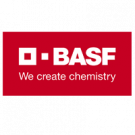




Topics covered in this guide:
- How does market intelligence work?
- What is a Market Intelligence Platform?
- The importance of having the right MI platform and tools
- How to choose the most suitable MI Solutions for your requirements?
- Understanding the different types of Market Intelligence Tools?
- Why should you try PREDIK’s Solution?
Out-of-the-box solutions for out-of-the-box challenges. Beat your competition, understand the market, identify new business opportunities, and solve complex problems.
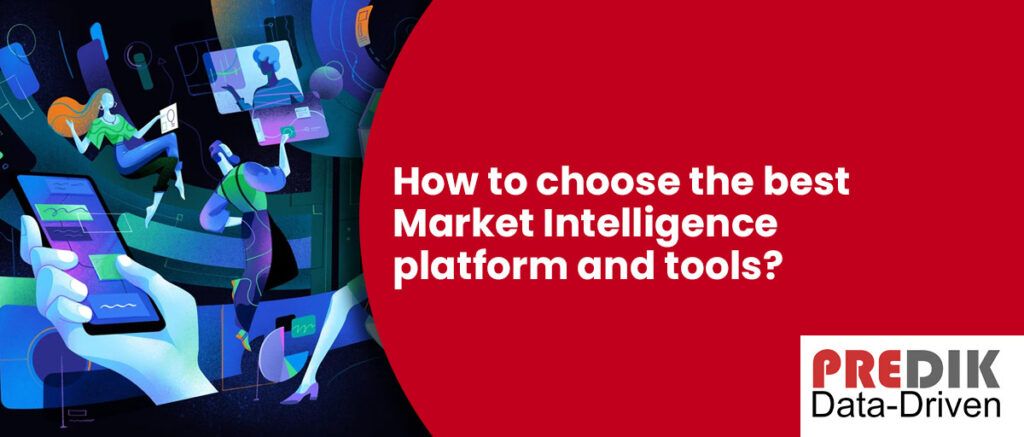
Market intelligence involves collecting, analyzing, and interpreting data about a company, its competitors, its customers, and industry trends.
Market intelligence aims to empower businesses intelligence with actionable information that can:
- Improve decision-making.
- Enhance marketing strategies.
- Develop competitor analysis.
- Optimize product offerings.
- Improve the overall competitive position.
Market intelligence contains different types of data, including:
- Market data: This involves gathering information about market size, segmentation, growth rates, and other key metrics. Market data helps businesses understand a target market’s potential and characteristics.
- Competitor data: This includes information about competitors’ products, pricing, distribution strategies, marketing efforts, and overall strengths and weaknesses. Tracking competitor data enables businesses to identify opportunities for differentiation and stay ahead of the competition.
- Customer data: Customer data includes insights into customer demographics, preferences, behaviors, and feedback. Understanding customers is crucial for businesses to tailor their products, services, and marketing campaigns. Thisi is the best way companies can meet their target audience’s needs and desires.
- Industry data: This data contains information about the overall industry trends. Industry insights include: Technological advancements, regulatory changes, and macroeconomic factors that may impact the market landscape.
Are market intelligence and market research the same?
Short answer: No. While market intelligence and market research share similarities in their objectives and methods, they differ in their approach.
Market intelligence involves systematically collecting, analyzing, and interpreting data and insights related to an overall industry. On the other hand, market research is a more focused approach to gathering and analyzing data to answer specific questions or solve problems related to a company’s market or customers.
How does market intelligence work?
Businesses can use diverse data sources, such as primary and secondary research.
Primary research: Interviews, surveys, in-depth interviews, filed studies, and focus groups.
Secondary research: Company websites, industry reports, research studies, government data, trade publications, online databases, data aggregators, news articles, and social media.
By combining both sources, companies can fully understand their market, competitors, customers, and industry trends.
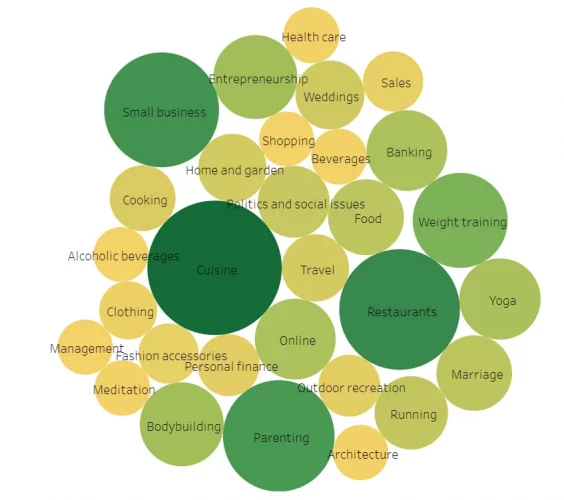
What is a Market Intelligence Platform?
A market intelligence platform is a software solution designed to help businesses gather, analyze, and interpret data related to their overall market, competitors, customers, and industry trends.
These software platforms provide a centralized, user-friendly interface that enables companies to access and use valuable information.
The importance of having the right market intelligence platform and tools
As we mentioned, Market intelligence analysis tools help you make sense of all the huge amounts of data collected from various sources.
Choosing the right intelligence software platform and tools will enable your company to identify patterns, trends, and insights. Information from MI platforms can enhance marketing and commercial strategies.
Having a great tool can help you:
- Identify opportunities and threats: Analyzing market data enables companies to spot emerging trends and potential challenges.
- Understand customer behavior: Data analysis helps businesses gain insights into customer preferences and behavior, enabling them to create targeted marketing campaigns.
- Optimize product offerings: Analyzing product performance data allows companies to identify areas for improvement and develop better products.
- Stay ahead of the competition: Data analysis helps businesses stay informed about competitor activities and maintain a competitive edge.
Three elements to consider when choosing a Market Intelligence Platform
Comprehensive Analytics and Reporting
An excellent market intelligence platform should offer comprehensive analytics and reporting capabilities.
This will allow you to gain a deep understanding of their market landscape. Look for platforms that provide customizable dashboards, visualizations, and the ability to export data in various formats.
Real-Time Data and Trend Analysis
Real-time data is essential when talking about Market Intelligence.
Choose a platform that offers real-time data and trend analysis using Big Data methodologies. Only with this, you will be able to identify emerging trends and react quickly to changes in the market.
AI-Powered Predictive Analytics
AI-powered predictive analytics enables businesses to forecast future trends and make data-driven decisions.
Opt for a market intelligence platform that leverages advanced AI algorithms to offer valuable insights and predictions.
Go beyond the “typical” market intelligence tools. At PREDIK Data-Driven, we can develop a tailor-made solution for your specific requirements and objectives.
Learn how to get the best of alternative real-time data and get the competitive advantage you are looking for.
How to choose the most suitable Market Intelligence Solutions for your requirements?
To conduct a successful competitive analysis, we recommend the following the steps:
- Identify your top competitors
- Evaluate your competitors’ strengths and weaknesses
- Analyze your competitors’ product offerings and pricing
- Assess your competitors’ Marketing Strategies
Define your objectives
Determine what you hope to achieve with a market intelligence platform. For example, you may want to improve your marketing campaigns, track competitors, or identify new opportunities.
Evaluate different platforms
Compare different market intelligence platforms based on your criteria, including features, pricing, and ease of use.
Get expert customer service
Make sure you have backup from a team of experts to help you get the best out of the platform.
For example, our Market Intelligence solutions go beyond a platform. That is why, when working with us, you can ensure you have a team of business and data experts covering your back.
Integrate the platform with existing systems
Streamline data flow by integrating the market intelligence platform with your CRM, email marketing, and other business tools.
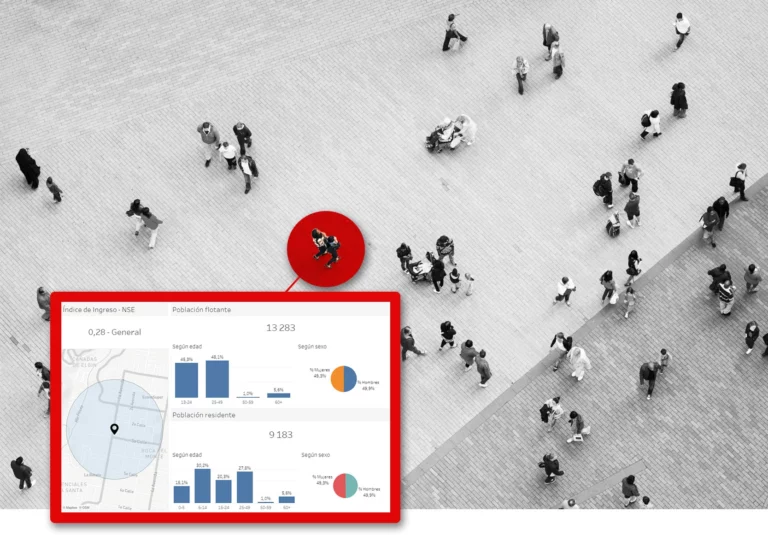
Understanding the different types of Market Intelligence Tools
Market intelligence tools come in various forms, each designed to serve specific purposes. Some of the most common types include:
Data Collection and Web Scraping Tools
Data collection and web scraping tools are a subset of market intelligence tools. They are designed to gather data from various sources, particularly websites, and organize it into a structured format for analysis.
These tools play a crucial role in the market intelligence process. They enable businesses to access and collect vast amounts of data from the internet, providing valuable insights.
Numerous data collection and web scraping tools are available in the market, each with unique features and capabilities. Some tools cover specific industries, while others serve more general purposes.
Here’s a list of some popular data collection and web scraping tools:
- Import.io: This tool allows users to extract structured data from websites without writing code.
- Scrapy: Scrapy is an open-source web crawling and scraping framework for Python. It enables developers to build custom web spiders to navigate through websites, follow links, and extract structured data.
- Octoparse: Octoparse is a powerful web scraping tool that offers both cloud-based and on-premises solutions for data extraction.
- Mozenda: Mozenda is a web data extraction solution that enables businesses to collect data from websites. The tool also transforms data into structured formats, and integrate it with other tools and platforms.
- ParseHub: ParseHub is a visual web scraping tool. It enables users to collect data from websites using a simple point-and-click interface. The platform supports data extraction from dynamic websites built with JavaScript, AJAX, and single-page applications (SPAs).
Social Media Monitoring and Sentiment Analysis Tools
Social media monitoring and sentiment analysis tools focus on gathering and analyzing data from social media platforms. These tools enable businesses to keep track of their brand’s online presence, monitor competitor activities, and understand customer opinions and preferences.
Here’s a list of some popular tools in this category:
- Hootsuite: Hootsuite is a widely used social media management platform that offers social media monitoring. It enables users to track mentions, keywords, and hashtags across multiple social media platforms.
- Brandwatch: Brandwatch is a powerful social listening and analytics platform. It helps businesses monitor their brand, competitors, and industry on social media and the web. It also provides in-depth insights into online conversations and customer opinions.
- Sprout Social: Sprout Social is a social media management and analytics platform offering tools for monitoring, engagement, and reporting. The platform provides sentiment analysis, competitor benchmarking, and customizable reporting features.
- Mention: Mention is a monitoring and listening tool that enables businesses to track mentions of their brand, competitors, or specific keywords across social media platforms, blogs, and news sites.
Competitive Intelligence Analysis and Benchmarking Tools
Market intelligence and competitive intelligence are closely related concepts.
Both, market and competitive intelligence contribute to a company’s overall understanding of its external environment.
As mentioned, market intelligence provides a broader perspective on the market landscape. On the other hand, competitive intelligence tools hones in on the activities and strategies of other players in the industry.
By leveraging both types of intelligence, businesses can really improve their marketing and commercial results.
Competitive analysis and benchmarking tools allow businesses to track competitor activities. They also compare performance against industry benchmarks, and identify areas for improvement.
Competitive intelligence softwares are essential for gaining competitive visibility and optimizing brand relevance.
Why should you try PREDIK's Market and Competitive Intelligence Solution?
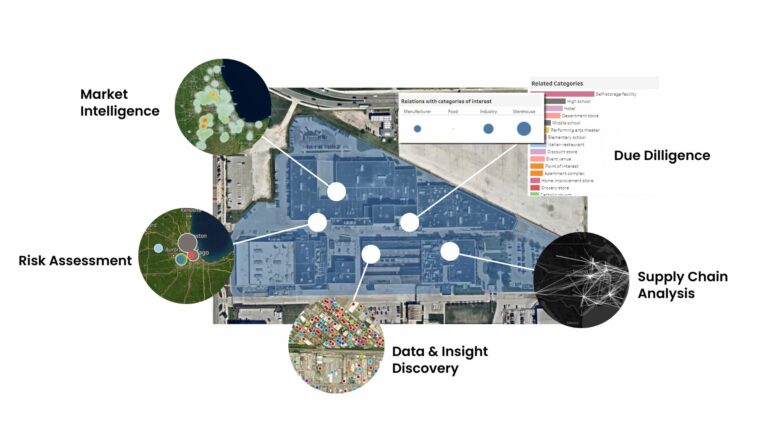
While other platforms and solutions focus on the “digital side,” our competitive intelligence solution tracks the real behavior of your market on the field.
Here are some reasons why we recommend you try our solution:
- Market intelligence tools tailor made to specific business needs.
- Big Data, machine learning, market intelligence tools, to precisely measure and track both retail and B2B markets.
- Tracking of macroeconomic indexes, sectoral growth, and economic forecasts.
- Studies of foreign trade flows in the United States.
- Identification and analysis of economic and business trends between companies, through cutting edge market intelligence techniques from Big Data to Machine Learning.
- Evaluation of new production lines from a business perspective, both for mass consumer market and industrial products.
- Market studies that pinpoint economic and productive relationships between physical facilities, companies, and others.
